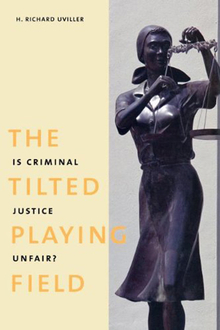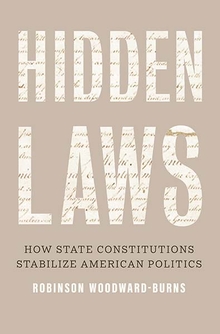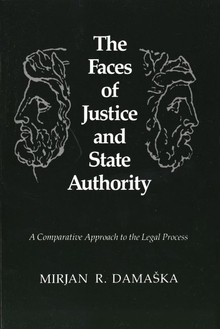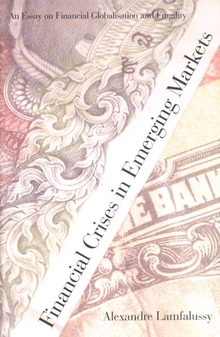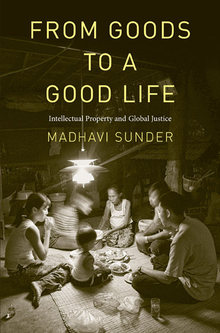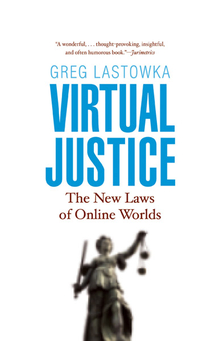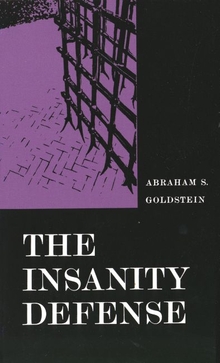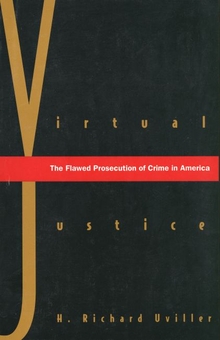The Tilted Playing Field
WARNING
You are viewing an older version of the Yalebooks website. Please visit out new website with more updated information and a better user experience: https://www.yalebooks.com
Is Criminal Justice Unfair?
H. Richard Uviller
In a lively exploration of the powers of the prosecutor and the prerogatives of the defense, Uviller asks where our criminal justice system is fair though unequal and where its inequalities may subvert fair results. On the one hand, he points out, the prosecutor has unmatched and virtually unreviewable discretion to choose the target of a prosecution, the charge, and to a large extent the timing of an indictment. The prosecution also is first on the scene to develop evidence and is entitled to compel the production of evidence from reluctant custodians. The lawyer for the defendant, on the other hand, enjoys virtually unrestricted license to argue contrary to his or her own sincere belief, as well as broad powers to discover evidence from the prosecutor’s file. Are these unequal advantages necessary? Are they fair? Uviller concludes that although the overall criminal justice system reflects a fair distribution of advantages and disadvantages, in certain areas the imbalance is so severe as to undermine justice. He offers realistic, carefully considered recommendations for reform in these problem areas.
“The product of Uviller’s efforts is a provocative and engaging book. . . . The Tilted Playing Field is most appropriately interpreted as a valuable statement in the ongoing dialogue about fairness and criminal justice.”—Stephen E. Hessler, Michigan Law Review
"Uviller’s comprehensive assessment of fairness is original and engaging. This is a book that will be frequently discussed and cited."—Paul G. Cassell, University of Utah College of Law
"Uviller tackles present practice in criminal adjudication and uses today’s sense of fairness to support his well-reasoned proposals. His book is both accessible and enjoyable."—Nancy J. King, Vanderbilt University School of Law
“Uviller ambitiously and studiously examines the criminal law concept of ‘fundamental fairness.’ He posits that such fairness may be achieved by tipping the scales in favor of a particular party during the course of a criminal trial. Accordingly, ‘fundamental fairness’ does not necessarily mean that both parties should be treated alike. Uviller grounds his hypothesis in thorough examinations of trial procedure, including prosecutorial discretion, access to evidence, burdens and presumptions, appellate procedure, and jury constraints.”—Library Journal
“Elegant and lucid.”—Sol Wachtler, New Yorker
“Thoughtful observations.”—Walter Olson, Wall Street Journal
"A stimulating source for discussion in a class devoted to defining justice. . . . [Ulviller’s] conversational style, the breadth of his knowledge, and his wit make the book enjoyable, even when one is arguing with his positions."—Mary W. Atwell, Law and Politics Book Review
“As a former public defender, I found parts of the book maddening. That is good. There is more than enough in The Tilted Playing Field to raise the dander of defense lawyers and prosecutors alike. . . . The book is beautifully written. I read it in one (11-hour) sitting, and I hated to see it end. . . . It was a hell of a ride. Well worth the price of admission.”—Michael Mello, Trial Magazine
“Is the state entitled to a fair trial? This is a volume that invites the reader to sit back, put your mental feet on the desk, ask that question among other, and take a fresh look at procedural regulations that tilt the field. Uviller approaches these from his history as a prosecutor; this reader enjoyed it from the defense perspective. Either way, it is a good read and a valuable contribution to the consideration of procedural jurisprudence.”—Susan Jacobs, Journal of Contemporary Criminal Justice
“The Tilted Playing Field is an intelligent and carefully written treatment of legal fairness and due process as these constitutional principles are applied to criminal procedure and the judicial system. The arguments presented are well reasoned and thought out, dialectical in their style and delivery, and reflective of both scholarly debates and experiences from the legal trenches of criminal adjudication.”—Gregg Barak, Criminal Justice Review
Publication Date: March 11, 1999

